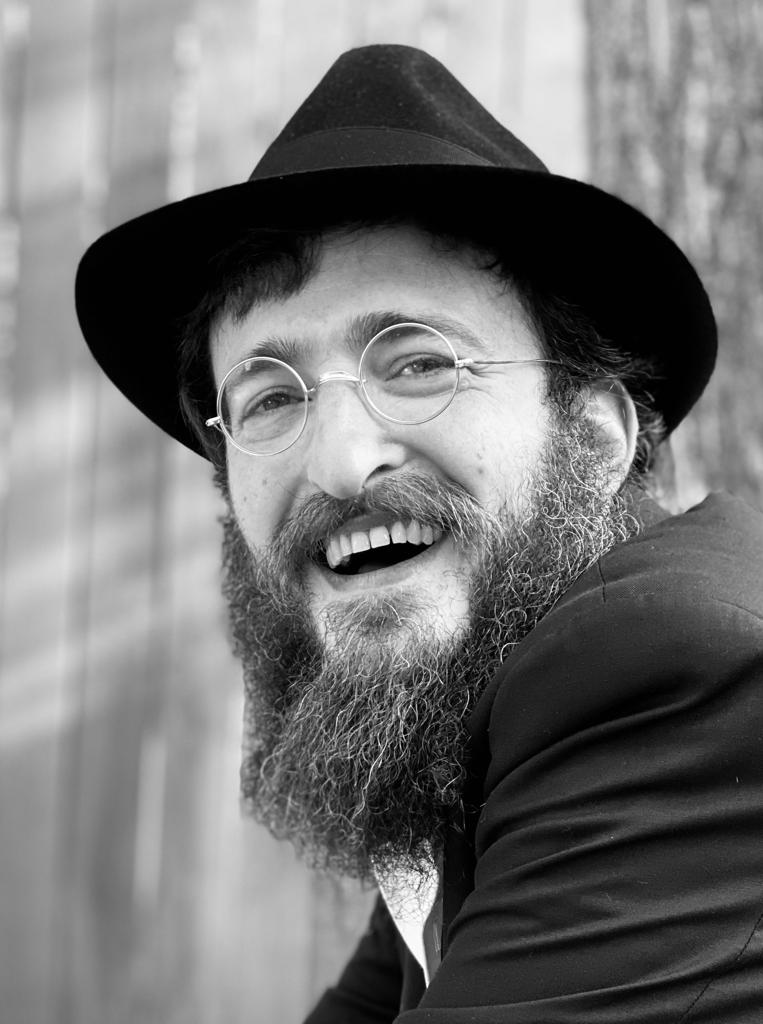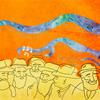The thick smell of fire and smoke enveloped Rabbi Avraham Wolff and his congregants as they stepped out of the synagogue in Odessa, Ukraine, last Friday evening. Violence had suddenly broken out earlier in the afternoon, but few could have foreseen the kind of destruction that rained down upon the famed Black Sea port city that day.
“We knew something was happening, but nobody thought such a thing could happen. This was totally unexpected,” said Wolff, Odessa’s chief rabbi and Chabad Lubavitch emissary since 1992. “The streets are quiet, some of the universities are closed, and everyone here is worried—the Jewish community amongst them.”
“Friday morning, everything was normal and calm,” added the rabbi’s wife, Chaya Wolff. “Aside, of course, from the fact that there are no tourists, no business and no work, it was calm; we felt nothing.”
Friday’s events, which ended up leaving at least 40 people dead, began to unfold in the early afternoon. The Metalist Kharkov soccer team was in Odessa to play the Chornomorets Odessa home team. Many soccer fans align themselves with the Ukrainian Maidan movement, and at around 2 p.m., groups of pro-Ukraine soccer fans—some reportedly bearing arms and armor—began marching towards the stadium in central Odessa. Eyewitness reports state that the group was set upon by pro-Russian separatists, who were prepared and armed for a street fight.
“It spiraled out of control very quickly,” said Chaya Wolff. “Within 30 minutes, everything was chaos.”
With both sides using bricks, sticks, guns and Molotov cocktails to fight, the injured were rushed to area hospitals by the dozens. The violence subsided at one point when the pro-Russians retreated towards a camp set up near the House of Trade Unions, a large Soviet-era municipal building in Odessa’s center. When the pro-Ukrainians followed them there, the fighting resumed; the Russians eventually withdrew into the Trade Union building.

During the battle, a fire ignited within the building that rapidly spread through all five of its floors. While both sides are blaming each other—with the pro-Ukrainians saying that it was the pro-Russians themselves who must have misfired a Molotov cocktail inside the building, and the pro-Russians saying it was thrown by Ukrainians—what is known is that by the time it was over, dozens lay dead, and the city was left reeling.
“This is not a normal thing to happen,” said Rabbi Wolff. “It’s not normal for Odessa, and it’s not normal for the whole Europe.”
‘A Political Situation’
“On Shabbat the synagogue was emptier than usual, but still, 100 people came,” said Chaya Wolff. “Then on Sunday, we received calls with people asking whether our school system would be open. But we want people to feel that things are continuing like normal, so we’re making sure that our schools—from kindergarten through our Jewish university—remain open.”
The rabbi was quick to emphasize that none of the unrest in the city has been aimed at the Jewish community. “We have experienced zero anti-Semitism. The situation is politically unstable, so we have to be prepared for anything and everything, but there is no Jewish question hanging over our heads here. This is a purely political situation.”

Although various media reports have described a hysterical Odessa Jewish community on the brink of evacuating from the city, Rabbi Wolff confirmed that there were no immediate plans to evacuate the community to anywhere. “As the Jewish community here in Odessa, we must have contingency plans in case of an emergency—we have a responsibility and we are taking our responsibilities very seriously—but we have no plans to evacuate. It’s not something happening now, and G‑d willing, it’s not something we will ever have to do.”
“About 80 percent of the 1,000 Jewish students in our educational system came to school on Monday,” said Chaya Wolff, adding that regularly scheduled prayers are being maintained at the synagogue, and that preparations are in full swing for Lag B’Omer festivities to mark the anniversary of the passing of Rabbi Shimon Bar Yochai.
City’s Colorful Past
Sitting, as the old Russian song goes, like a brilliant gem found on the sea shore, Odessa boasts a proud and colorful Jewish past. At the turn of the century, nearly 40 percent of the city’s population was Jewish, and the community played an even more outsized role in Odessa’s boisterous business climate. With the help of its native Jewish authors, thinkers and political activists, the myth of the street-smart, eternally optimistic Odessa Jew has become memorialized in Russian Jewish literature and song.

The advent of World War II played a significant part in the decimation of Odessa’s Jewish community. At least half of the Jewish population fled before Axis troops surrounded the city in October of 1941, leaving between 80,000 and 90,000 Jews there. Tens of thousands of people were shot and even burned alive in the following weeks; the rest were sent to two ghettos on the edge of the city, where many died of starvation, disease and exposure.
By February 1942, nearly 20,000 surviving Jews were deported to Romanian-administered camps and ghettos in the Berezovka region in Transnistria, where many were eventually killed.
Although additionally diminished since the beginning of Soviet Jewish emigration in the 1980s and ’90s, Odessa’s Jewish community still numbers at around 50,000, and Chabad currently employs seven emissary families in the city. Yet the sharp recent turn in the political climate in their city has made many members of the Jewish community nervous.
Tensions have remained high in the city since Friday, and the Wolffs acknowledge that many in the community and the city are still shaken, unsure of what the next day will bring. Maintaining a sense of normalcy has now become a priority for the Jewish community.

“Nothing here was done by Odessa natives; it was all by people from outside of our city,” explained Wolff. “Everyone wants calm; they were getting ready to vote in the city and federal elections at the end of the month, and then people from outside the city came here and made a balagan [chaos]. But we are going to continue on until things are back to normal here.”
“We are doing everything we can to assist everyone at this time,” added her husband, “especially families with children and the elderly. And we will continue to see to it that the Jewish community in Odessa functions throughout this situation.”













Join the Discussion